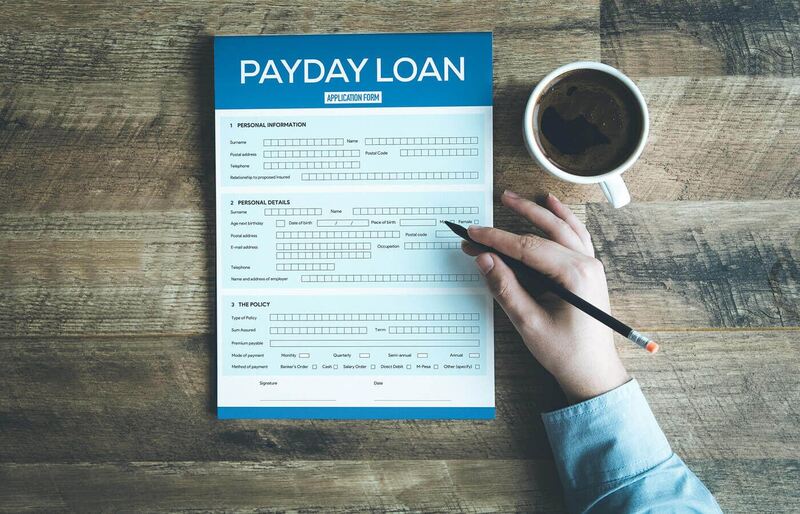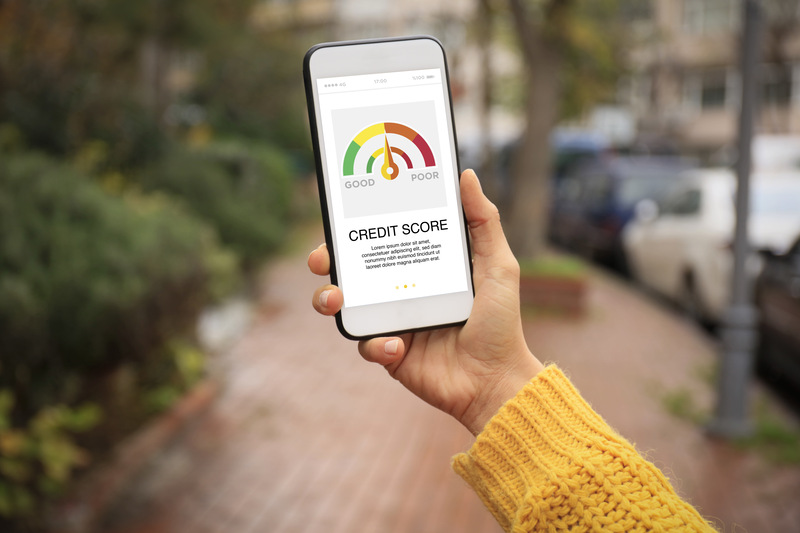In times of financial limitation, people commonly look into borrowing choices. Payday loans and personal loans stand as two prevalent answers to this need but they have notable differences in structure and consequences. This article explains the distinctions between these borrowing methods to give readers a helpful understanding.
Eligibility and Application Process
Payday loans are created to give fast help to people who have urgent money requirements. They are short-term, which means that they can be applied for by many different people even if their credit history is not perfect. However, it's important to remember that lenders of payday loans usually need proof of a regular income like having a job or getting benefits, and also an active checking account. These needs make sure that the borrowers can pay back the loan on their upcoming payday, decreasing risk for lenders.

Furthermore, personal loans are usually longer-term commitments so they might have a stricter application procedure. When you look for personal loans from lenders like banks, credit unions, or online platforms, the usual process includes checking your creditworthiness with a credit check. They could also ask for documents that prove your income along with information about employment history and other financial details. Though this method might appear more intimidating, it lets lenders provide bigger amounts of loans and better conditions to borrowers who have good credit histories.
- Income Verification: Payday loan applicants must provide proof of a steady income source.
- Credit Checks: Personal loan applicants should be prepared for lenders to conduct credit checks to assess creditworthiness.
Loan Amounts and Terms
Payday loans are designed for people who need money right away. They offer relatively small amounts, usually from a few hundred dollars to a couple thousand dollars. These types of loans aim to cover short-term costs until the person gets paid again by their job. Therefore, the time given back is short and often only around two or four weeks long. Loan amounts may appear small, but they could be enough for handling immediate needs such as paying medical or vehicle costs.
On the other hand, personal loans give borrowers the option to get larger sums of money. The size of a personal loan, which can range from a few thousand dollars to tens of thousands, depends on factors like the lender and how much trustworthiness they see in you as a borrower. So for bigger costs such as house improvements or paying off many debts all at once also purchasing something significant, it's a good choice to use personal loans. Additionally, personal loans provide greater flexibility in terms of paying back the borrowed money. This means that the borrower can select a specific time frame for repaying the loan which matches their financial situation.
- Urgency of Funds: Payday loans are ideal for immediate financial needs, while personal loans are better suited for larger expenses.
- Flexibility in Repayment: Personal loans offer borrowers the flexibility to choose repayment terms that fit their budget and financial goals.
Interest Rates and Fees
Payday loans are famous for their incredibly high interest rates, sometimes even hitting triple digits when calculated as an annual percentage rate (APR). This cost of borrowing can become very expensive fast, particularly for those who find it difficult to pay back the loan within the expected time frame. Sometimes, there could be more charges like origination fees or rollover fees that add up and make things even worse financially for borrowers. Thinking about all the costs involved in a payday loan is very important for those who want to borrow money.
However, personal loans usually have lower interest rates especially if the person borrowing has a high credit score. But remember this: even with a personal loan there can be charges like origination fees or penalties for paying off early. People taking out loans should carefully read all the rules and conditions in the agreement to know about every cost related to it. Moreover, by comparing what several lenders are offering, borrowers can identify the most competitive interest rates and fee arrangements.
- Total Cost of Borrowing: Payday loan borrowers should be aware of the cumulative cost of interest and fees, which can significantly increase the loan's overall expense.
- Comparison Shopping: Borrowers seeking personal loans should compare offers from multiple lenders to find the most favorable interest rates and fee structures.
Credit Impact and Risk Factors
Payday loans are often marketed as accessible to individuals with poor or no credit history, as they typically do not require a traditional credit check. However, this accessibility comes with significant risks. Defaulting on a payday loan can result in collection actions, damaged credit, and a cycle of debt that can be challenging to escape. Borrowers should be cautious and consider alternative borrowing options before resorting to payday loans, particularly if they have other means of accessing funds.

For personal loans, creditworthiness is part of the application process. When a borrower has a good credit score, they have more chances to get better terms and lower interest rates. If someone does not have high creditworthiness, it can be difficult for them to get approval for a personal loan or they might receive less favorable conditions in their offer. Before committing to a personal loan, borrowers need to recognize how borrowing could potentially affect their credit score and overall financial situation.
- Impact on Credit Score: Defaulting on a payday loan can have adverse effects on credit scores and financial stability.
- Creditworthiness: Borrowers with poor credit may face challenges securing a personal loan or may be offered less favorable terms.
Repayment Flexibility and Consequences
Payday loans mandate full repayment, including the principal amount plus fees and interest, on the borrower's next payday. This strict repayment schedule leaves little room for financial flexibility and can be challenging for borrowers to meet, especially if they are already experiencing financial strain. Failure to repay on time can result in additional fees and interest charges, further exacerbating the borrower's financial burden. In some cases, borrowers may be tempted to roll over the loan, extending the repayment period but also increasing the total cost of borrowing.
Conversely, personal loans offer borrowers more repayment flexibility. Borrowers can choose from a variety of repayment terms, ranging from months to several years, allowing them to tailor the loan to their budget and financial goals. Additionally, personal loans typically come with fixed monthly payments, making it easier for borrowers to plan and budget for repayment. However, borrowers need to prioritize timely repayment, as defaulting on a personal loan can have serious consequences, including damaged credit and potential legal action.
- Rolling Over Loans: Borrowers should be cautious about extending payday loans through rollovers, as it can lead to increased costs and further financial strain.
- Timely Repayment: While personal loans offer more repayment flexibility, borrowers should prioritize timely repayment to avoid negative consequences such as damaged credit.
Choosing the Right Option
When comparing payday loans and personal loans, it's crucial for borrowers to carefully evaluate their financial needs, circumstances, and repayment capacity. Payday loans provide quick access to funds, making them appealing to individuals facing immediate financial emergencies. However, their high costs and short repayment terms pose significant risks, particularly for borrowers who may struggle to repay on time. Before opting for a payday loan, borrowers should explore alternative sources of funds and consider the long-term implications of borrowing at such high costs.
Alternatively, personal loans give larger amounts of money and better conditions, so they are appropriate for bigger costs or combining current debt. Although the process to apply could be harder and approval might rely on the creditworthiness of borrowers with these types of loans, it gives flexibility in repaying as well as less costly overall compared to payday loans. Before applying for a personal loan, borrowers must evaluate their creditworthiness, compare offers from various lenders, and fully understand all terms and conditions.
- Long-Term Implications: Borrowers should carefully consider the long-term implications of borrowing, particularly when opting for payday loans with high costs and short repayment terms.
- Alternative Sources: Before resorting to payday loans, borrowers should explore alternative sources of funds, such as savings, assistance programs, or borrowing from friends and family.
Conclusion
To conclude, payday loans and personal loans are different financial options. They have their good points and bad points. It is very important to know the differences between these borrowing methods so that you can make wise choices for your money matters. By thinking about things like who can apply, how long the loan lasts, what interest rate it has, and how easy it is to pay back, people can select which choice matches more closely with their monetary aims and conditions.

The Impact of Direct Taxes on Economic Development

Quontic Bank vs. Ally Bank 2024: Comprehensive Comparison

NorthOne Business Banking Review 2024: Simplified and Effective Solutions

Three Steps for Dealing with Significant Medical Bills

Currency Valuation 101: What Really Affects Exchange Rates

Do I Qualify For Free Tax Filing? How To Avoid The Upgrade Trap

Exploring Landa: How This Real Estate Investment App Works and Its Benefits

Wagmo Pet Insurance Uncovered: Features, Pros, and Cons Explored

2024 Showdown: OneUp Trader vs TopStepTrader for Funded Trading Accounts

Exploring Financing Entities: Balancing Opportunities and Risks

An In-Depth Review of Goat Funded Trader in 2024
